Sign up for our newsletter
Subscribe to our emails
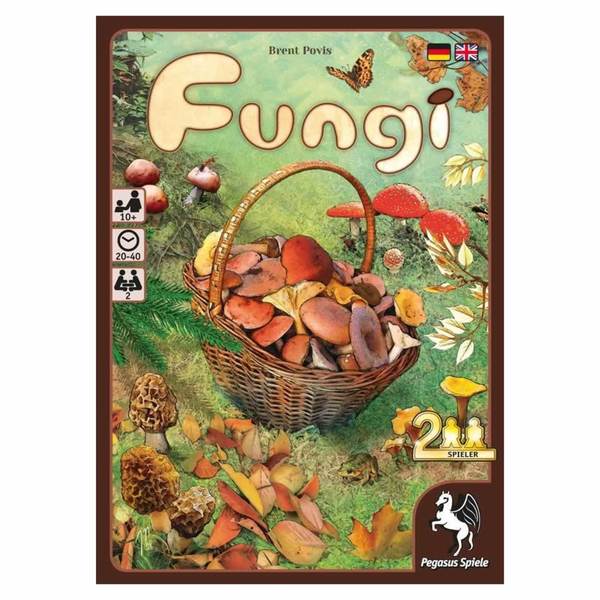
The woods are old-growth, dappled with sunlight. Delicious mushrooms beckon from every grove and hollow. Morels may be the most sought-after in these woods, but there are many tasty and valuable varieties awaiting the savvy collector. Bring a basket if you think it's your lucky day. Forage at night and you will be all alone when you stumble upon a bonanza. If you're hungry, put a pan on the fire and bask in the aroma of chanterelles as you sauté them in butter. Feeling mercantile? Sell porcini to local aficionados for information that will help you find what you seek deep in the forest.Fungi, a strategic card game for two players, uses two decks: a Day Deck (84 cards) that includes ten different types of mushrooms as well as baskets, cider, butter, pans, and moons; and a smaller Night Deck (8 cards) of mushrooms to be foraged by moonlight. Each mushroom card has two values: one for selling and one for cooking. Selling two or more like mushrooms grants foraging sticks that expand your options in the forest (that is, the running tableau of eight face-up cards on the table), enabling offensive or defensive plays that change with every game played. Cooking sets of three or more like mushrooms – sizzling in butter or cider if the set is large enough – earns points toward winning the game. With poisonous mushrooms wielding their wrath and a hand-size limit to manage, card selection is a tricky proposition at every turn.Following each turn, one card from the forest moves into a decay pile that is available for only a short time. The Day Deck then refills the forest from the back, creating the effect of a walk in the woods in which some strategic morsels are collected, some are passed by, and others lay ahead.
£14.00 £12.60
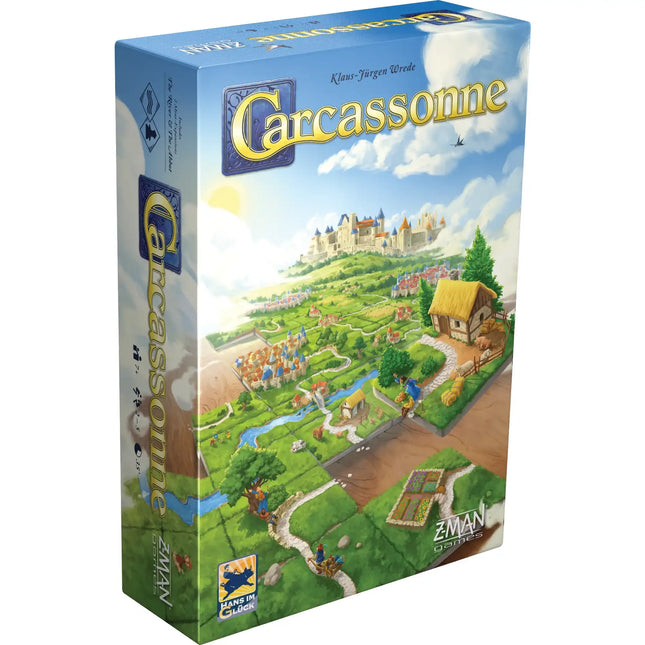
Carcassonne is a tile-placement game in which the players draw and place a tile with a piece of southern French landscape on it. The tile might feature a city, a road, a cloister, grassland or some combination thereof, and it must be placed adjacent to tiles that have already been played, in such a way that cities are connected to cities, roads to roads, etcetera. Having placed a tile, the player can then decide to place one of their meeples on one of the areas on it: on the city as a knight, on the road as a robber, on a cloister as a monk, or on the grass as a farmer. When that area is complete, that meeple scores points for its owner.During a game of Carcassonne, players are faced with decisions like: "Is it really worth putting my last meeple there?" or "Should I use this tile to expand my city, or should I place it near my opponent instead, giving him a hard time to complete their project and score points?" Since players place only one tile and have the option to place one meeple on it, turns proceed quickly even if it is a game full of options and possibilities.First game in the Carcassonne series.
£35.00 £31.50

Colour may vary
£4.00
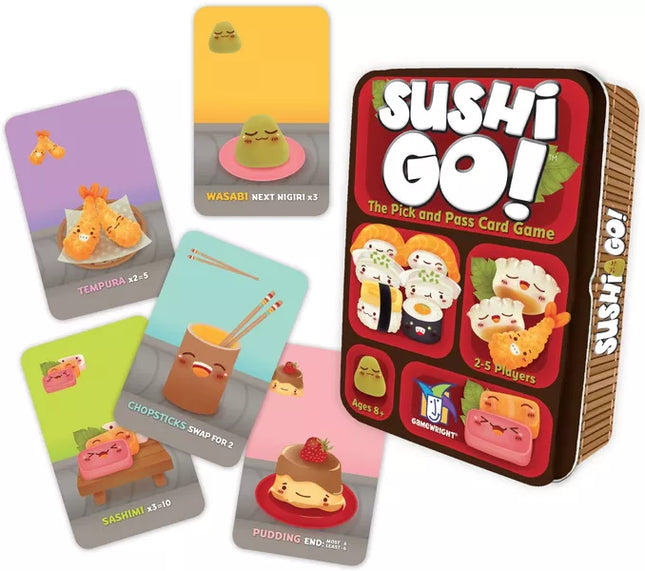
In the super-fast sushi card game Sushi Go!, you are eating at a sushi restaurant and trying to grab the best combination of sushi dishes as they whiz by. Score points for collecting the most sushi rolls or making a full set of sashimi. Dip your favorite nigiri in wasabi to triple its value! And once you've eaten it all, finish your meal with all the pudding you've got! But be careful which sushi you allow your friends to take; it might be just what they need to beat you!Sushi Go! takes the card-drafting mechanism of Fairy Tale and 7 Wonders and distills it into a twenty-minute game that anyone can play. The dynamics of "draft and pass" are brought to the fore, while keeping the rules to a minimum. As you see the first few hands of cards, you must quickly assess the make-up of the round and decide which type of sushi you'll go for. Then, each turn you'll need to weigh which cards to keep and which to pass on. The different scoring combinations allow for some clever plays and nasty blocks. Round to round, you must also keep your eye on the goal of having the most pudding cards at the end of the game!
£15.99 £14.40

These cards are made to travel. They're tough, elegantly designed, and because they're made from recycled plastic, totally waterproof. There's the equivalent of 16 plastic bottles in here! Contents: 54 playing cards
£8.00
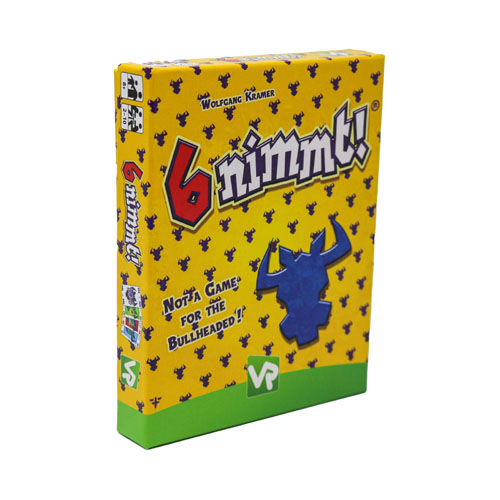
In 6 nimmt!, a.k.a. Category 5 and many other names, you want to score as few points as possible.To play the game, you shuffle the 104 number cards, lay out four cards face-up to start the four rows, then deal ten cards to each player. Each turn, players simultaneously choose and reveal a card from their hand, then add the cards to the rows, with cards being placed in ascending order based on their number; specifically, each card is placed in the row that ends with the highest number that's below the card's number. When the sixth card is placed in a row, the owner of that card claims the other five cards and the sixth card becomes the first card in a new row.In addition to a number from 1 to 104, each card has a point value. After finishing ten rounds, players tally their score and see whether the game ends. (Category 5 ends when a player has a score greater than 74, for example, while 6 nimmt! ends when someone tops 66.) When this happens, the player with the fewest points wins!6 nimmt! works with 2-10 players, and the dynamics of gameplay change the more players that you have. One variant for the game has you use 34 cards, 44 cards, 54 cards, etc. (instead of all 104 cards) when you have three, four, five, etc. number of players. This change allows you to know which cards are in play, thereby allowing you to track which cards have been played and (theoretically) make better choices as to which card to play when.
£10.00
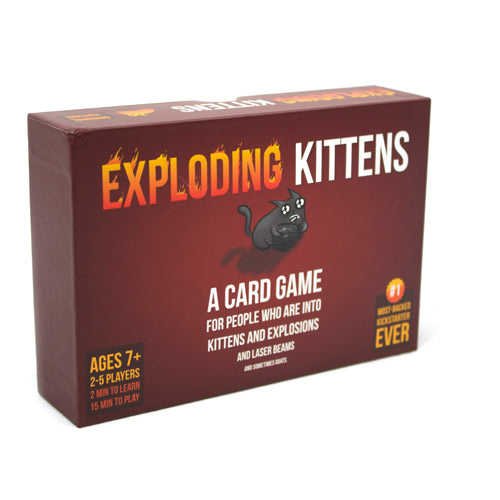
Exploding Kittens is a kitty-powered version of Russian Roulette. Players take turns drawing cards until someone draws an exploding kitten and loses the game. The deck is made up of cards that let you avoid exploding by peeking at cards before you draw, forcing your opponent to draw multiple cards, or shuffling the deck.The game gets more and more intense with each card you draw because fewer cards left in the deck means a greater chance of drawing the kitten and exploding in a fiery ball of feline hyperbole.
£19.99 £18.00
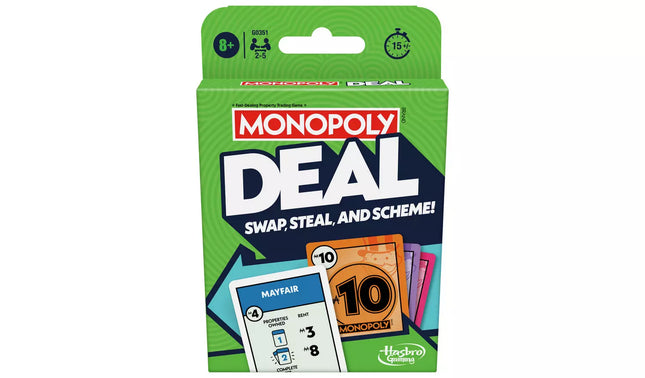
(from the box):The fast-paced, addictive card game where your luck can change in the play of a card! Collect 3 complete property sets, but beware Debt Collectors, Forced Deals and the dreaded Deal Breakers, which could change your fortunes at any time!MONOPOLY DEAL - the card game where anything can happen!How to win: Be the first player to collect 3 three full property sets of different colors.The Cards: Action Cards may be played to initiate the action printed on the card or may be used as money of the value noted in the upper left and lower right corners.Property Cards some denote a specific property and some are wild. They show property name, set to which they belong (or in which sets they may be used), rental costs, number of properties in their set and their value when used to make payments. House/Hotel Cards may be used to increase the rental cost of a property set. They also have a monetary value for use in making payments.Money Cards are used to make payments.Play:Draw two cards from the draw pile, or if you start your turn with no cards, draw five.Play up to three cards from your hand face up either as: money into your bank, properties or improvements into your collection, or actions. Action cards allow you to collect rent, receive money, take properties from others or cancel another action. Cards placed in your bank may only be used as money. When you must make a payment, you may use money from your bank or properties and improvements in your collection, but not cards in your hand.Discard cards in excess of seven from your hand to the bottom of the draw pile.Win by announcing it on your turn when you have three complete property sets of different colors. This ends the game.
£6.00
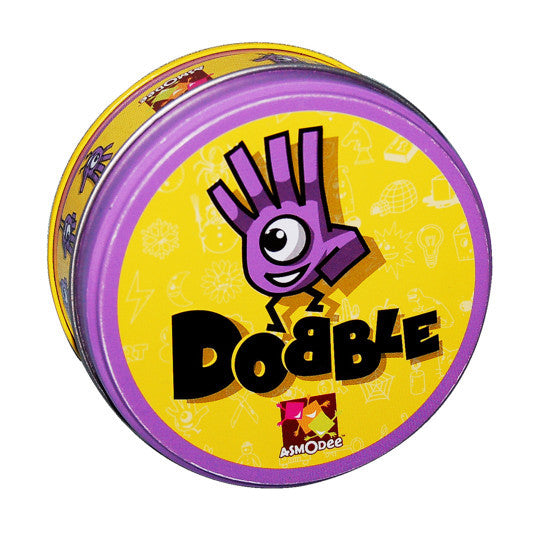
Dobble, is a simple pattern recognition game in which players try to find an image shown on two cards.Each card in original Spot it! features eight different symbols, with the symbols varying in size from one card to the next. Any two cards have exactly one symbol in common. For the basic Spot it! game, reveal one card, then another. Whoever spots the symbol in common on both cards claims the first card, then another card is revealed for players to search, and so on. Whoever has collected the most cards when the 55-card deck runs out wins!
£13.99 £12.60
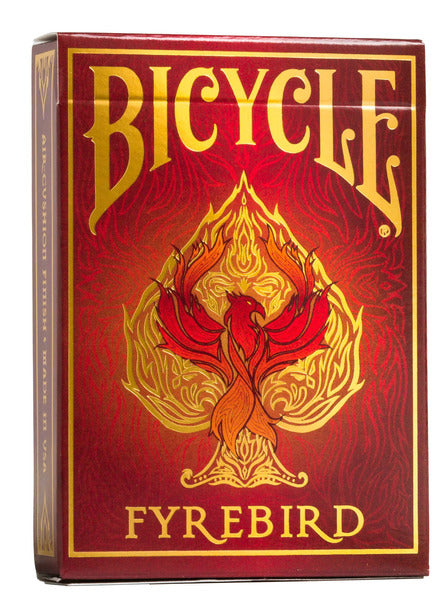
£8.00
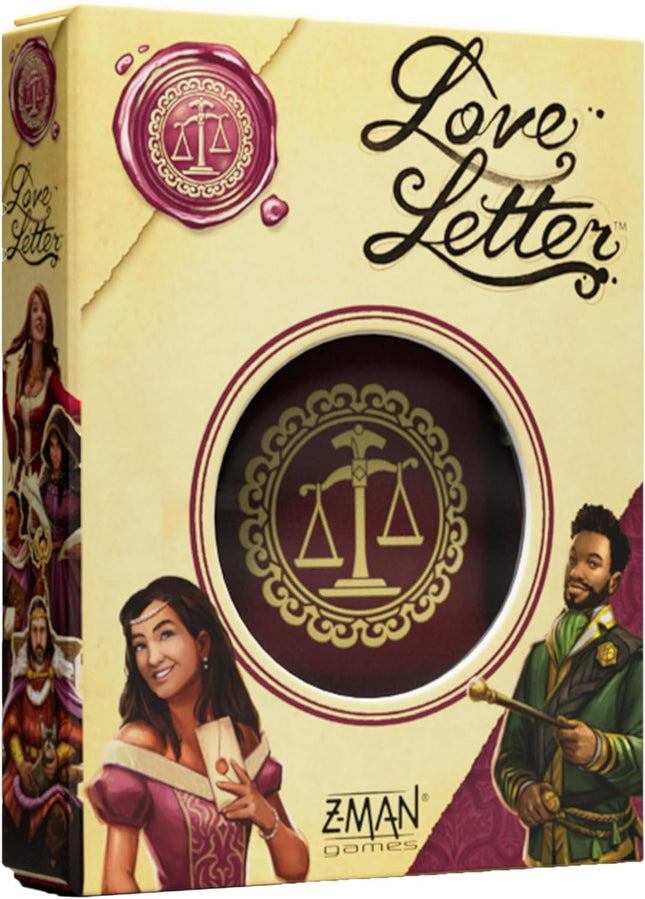
The noble Princess is looking for an ideal partner and confidant to help with her royal duties when she one day assumes the throne. You must prove your worth and gain her trust by enlisting allies, friends, and family of the Princess to carry a letter of intent to her. Can you earn the Princess' trust and become her confidant? Playing cards one at a time, players in Love Letter use the abilities of these key people in the Princess' life to outwit their opponents and successfully deliver their letter and gain her favor. Players must utilize each character's special skill to avoid being caught and successfully deliver their letter to the Princess. Once a set number of favor tokens are acquired, that player wins and becomes the Princess' confidant. This 2019 edition of Love Letter features new artwork by Citadels artist Andrew Bosley, screen-printed tokens, and two new characters (five cards in total) that allow for games with up to six players. When played, the Chancellor (value 6) allows you to draw two new cards, add those to your hand, then place two cards of your choice on the bottom of the deck. The Spy (value 0) wins you a favor token if you were the only player to play or discard a spy during the round.
£15.00 £13.50
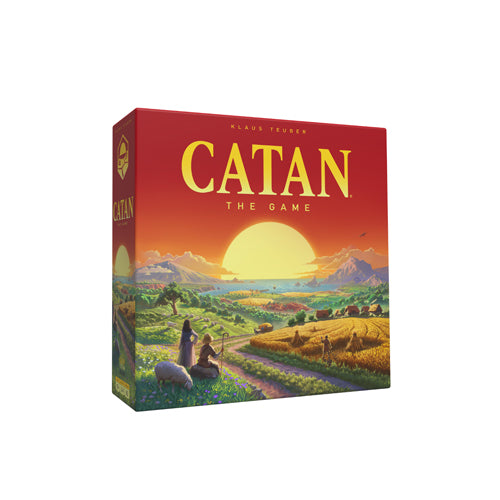
Welcome to the unexplored island of Catan!As you and your fellow explorers gaze across the uninhabited landscape of hexagonal tracts of terrain, you quickly realize that this unique land arrangement provides ample space for each of you to put down roots.You race off to establish your respective communities by gathering resources from nearby terrain, building your infrastructure, and nurturing trade relationships.Watch out for surprises! Your rivals can block your path or send the robber to plunder your wealth!
£49.99 £45.00
Subscribe to our emails